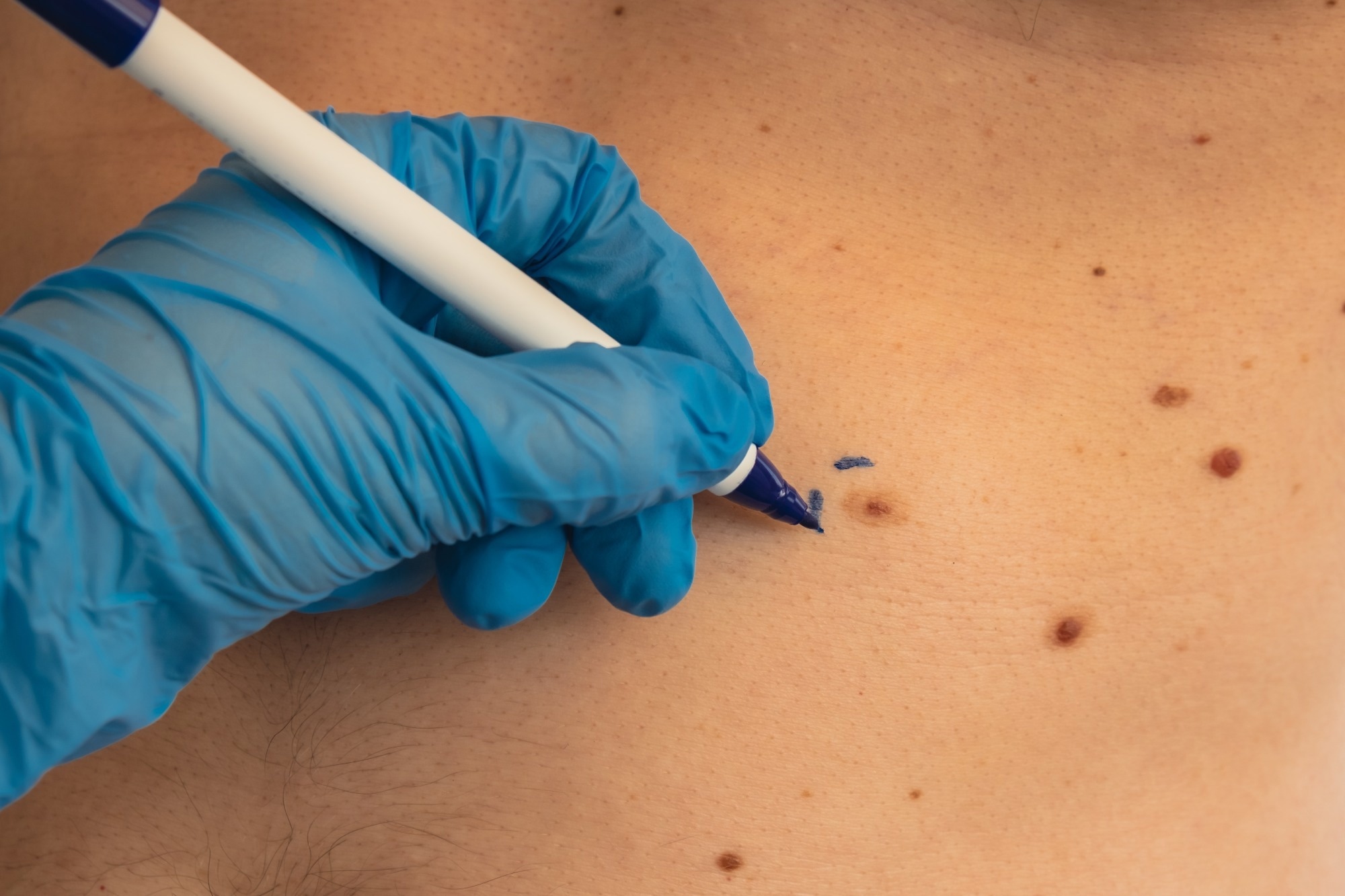In an evolving health landscape, emerging research continues to highlight concerns that could impact everyday wellbeing. Here’s the key update you should know about:
Starting nicotinamide early after a first skin cancer could sharply cut future cancer risk, according to a real-world VA study of over 33,000 patients.
Study: Nicotinamide for Skin Cancer Chemoprevention. Image Credit: yanishevska / Shutterstock
In a recent study published in the journal JAMA Dermatology, researchers leveraged data from a large-scale retrospective cohort to investigate the associations between nicotinamide (vitamin B3) and real-world nonmelanoma skin cancer. Because this was an observational analysis, the results reflect associations rather than proven causality.
The study analyzed electronic health records from over 33,000 U.S. veterans and found that nicotinamide is associated with a decreased risk of developing new keratinocyte skin cancers overall, as well as for cSCC, with no overall reduction for BCC. However, the protective effect was most pronounced (56%) when the supplement was started after a patient’s first skin cancer and progressively weakened with each subsequent diagnosis, becoming non-significant after the seventh.
Background
Nonmelanoma skin cancers, primarily basal cell carcinoma (BCC) and cutaneous squamous cell carcinoma (cSCC), are the most common malignancies in the world. Alarmingly, reports suggest that their prevalence is exacerbating, with research finding that for individuals who have already had one skin cancer, the risk of developing another is significantly elevated, making preventive strategies a priority.
Nicotinamide, an inexpensive and widely available over-the-counter vitamin B3 supplement, has emerged as a leading candidate for chemoprevention. A landmark 2015 randomized clinical trial (RCT) demonstrated that 500 mg of nicotinamide, consumed twice daily, substantially reduced the rate of new skin cancers in high-risk patients. A subsequent RCT in solid organ transplant recipients did not show an overall benefit.
These findings led to widespread adoption by dermatologists and oncologists, especially for patients with extensive histories of skin cancer. Unfortunately, real-world, large-scale data on the benefits of nicotinamide remains lacking.
About the study
The present study addresses these knowledge gaps and guides future oncological practice by conducting a large retrospective cohort study using data from the U.S. Veterans Affairs (VA) Corporate Data Warehouse (CDW), a massive repository of electronic health records (EHRs).
The study leveraged data from 33,822 veterans with a clinically confirmed history of skin cancer. From this group, 12,287 patients (‘cases’) who had been prescribed oral nicotinamide (500 mg, twice daily for more than 30 days) were identified.
Statistical analyses, specifically propensity score matching (PSM), were used to compare these patients to 21,479 socio-demographically similar patients who had not taken the nicotinamide supplement (‘controls’). PSM was controlled for numerous factors, including age, sex, race, acitretin use, field therapy, chronic lymphocytic leukemia, solid organ transplant status, and, most importantly, the number and timing of skin cancers a patient had before the nicotinamide was initiated.
The study’s primary outcomes of interest were the time to the development of a new procedurally treated skin cancer, with events identified using paired ICD and CPT codes and a 90-day window after starting the supplement.
Study findings
The present study participants had a mean age of 77.2 years (2.0% women) and mainly comprised White participants (94.9%). PSM analyses revealed a significant, albeit modest, overall benefit of nicotinamide supplementation. Patients taking nicotinamide demonstrated a 14% lower risk of developing a new skin cancer compared to the unexposed control group. This risk reduction was primarily attributed to a 22% reduction in cSCC (Hazard Ratio [HR], 0.78; 95% CI, 0.75-0.82), with no significant overall reduction observed for BCC (HR, 1.00; 95% CI, 0.96-1.05).
Within the matched dataset, there were 10,994 instances of basal cell carcinoma (BCC) and 12,551 instances of cutaneous squamous cell carcinoma (cSCC) after nicotinamide exposure, while a total of 1334 (3.9%) in the matched cohort were solid organ transplant recipients.
Notably, nicotinamide’s protective effects were strongest when supplementation was initiated immediately after a patient’s very first skin cancer, where it was associated with a 56% reduction in the risk of a subsequent cancer. However, this benefit steadily declined as the number of prior skin cancers increased (43% after a second skin cancer and 30% after a third, eventually becoming statistically insignificant after the seventh).
Surprisingly, among high-risk solid organ transplant recipients, nicotinamide did not show an overall benefit, but among SOTRs with only one or two prior skin cancers, early use was associated with a reduced risk of cSCC.
Conclusions
The present large-scale (n > 33,000 participants) real-world study provides observational evidence on the clinical associations of nicotinamide for skin cancer prevention. Study findings strongly suggest that while the overall benefits may appear modest, the molecule’s greatest advantage lies in early intervention.
While the supplement offers a clear association with reducing the risk of new skin cancers, particularly the more aggressive cSCC, this protective effect is observed to wane as a patient’s disease burden grows. Because this was an observational study, residual confounding and limited generalizability to non-VA populations should be considered, and randomized trials are still needed.
Clinicians should engage in shared decision-making, weighing potential benefits, patient risk profiles, and alternative preventive options, rather than adopting routine use until more definitive randomized evidence is available.
Journal reference:
- Breglio, K. F., Knox, K. M., Hwang, J., Weiss, R., Maas, K., Zhang, S., Yao, L., Madden, C., Xu, Y., Hartman, R. I., & Wheless, L. (2025). Nicotinamide for Skin Cancer Chemoprevention. JAMA Dermatology. DOI – 10.1001/jamadermatol.2025.3238. https://jamanetwork.com/journals/jamadermatology/fullarticle/2838591
